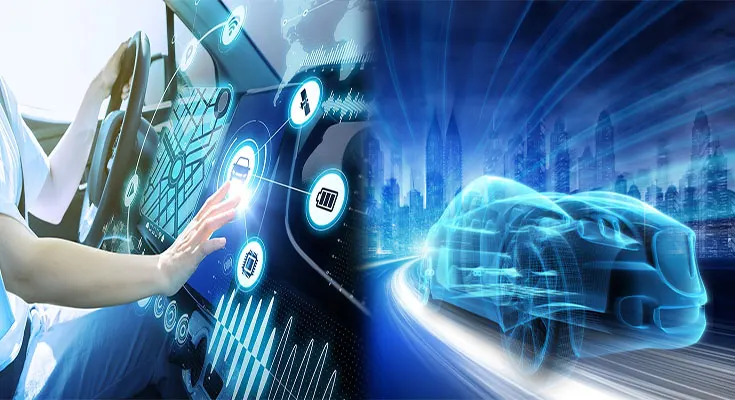Connected cars are vehicles that are able to communicate with other devices over the internet. This communication can be used to perform a variety of tasks, such as controlling vehicle functions or monitoring security.
As technology advances, more and more people are recognizing the value that connected cars can provide. They are also seeing the positive impact that these technologies can have on society as a whole.
The Evolution of Connected Cars
Connected cars are dynamic, updateable devices that bring information from external networks into the vehicle. This opens up a vast array of potential services and software-driven innovations that make vehicles more convenient, safe and eco- friendly to operate.
The benefits of connectivity in connected cars are many, including automated fuel payments, predictive maintenance and remote software upgrades. However, the biggest benefit lies in the ability to use data from these devices to make a safer, more sustainable and intelligent mobility infrastructure.
This includes reducing congestion, learning based on changing mobility trends, boosting operations of public EV charging infrastructure and ensuring safety in emergencies or collisions. These benefits will only be achieved with the help of robust, high-speed networks that enable reliable, low-latency data sharing and management.
The Benefits of Connected Cars
Connected cars are vehicles that communicate bidirectionally to other systems both inside and outside the vehicle. These systems include LANs, dedicated short-range communications (DSRC), or cellular radios.
Wireless communication is a key element in connected cars since it allows data to be transferred instantaneously. This is useful for reducing traffic congestion and ensuring safety in case of emergencies or collisions.
However, while these capabilities can provide a wealth of benefits to drivers, there are also a number of challenges to address before connected cars become widely accepted. One such challenge is security and privacy.
The Future of Connected Cars
Connected cars are vehicles that can be connected to other services, devices or parts of infrastructure such as traffic signals and emergency centers. These systems can be used to improve driver safety, reduce fuel consumption and increase vehicle lifespans.
Automakers are now integrating more technology into their vehicles than ever before. This is a revolution for consumers as they are now able to connect their cars to services that make their life easier and safer.
The Role of 5G in Connected Cars
Connected cars are vehicles that use a network to communicate with other cars and other devices. This can be anything from basic functions such as navigation and safety features to advanced ones such as autonomous driving.
The network also enables real-time over-the-air updates of vehicle software and infotainment systems that can deliver delay-free improvements to drivers. With 5G technology, these upgrades can be delivered with lower latency and high reliability.
Ultimately, connected cars will become an important part of the Internet of Things (IoT). Data from vehicles and their surroundings will help improve society in all kinds of ways. This will include better roads, safer transportation, and more reliable infrastructure.
Security and Privacy in Connected Cars
Connected cars are vehicles that have the ability to communicate with other devices and services. They can also be linked to your home, office and even parts of infrastructure such as traffic signals or emergency centres.
The key to ensuring that connected cars are safe and secure is to implement security controls and a data management system. These systems should be able to monitor and control the data flow in real-time.
A recent survey found that a large number of consumers are worried about cybersecurity and privacy in connected cars. The top concerns cited were a lack of information about the technology and a lack of trust in the automotive industry to protect their data.

